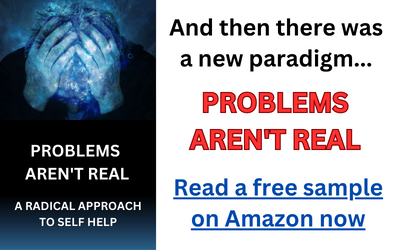Karma means different things to different people. A fair definition of karma, I believe, is unresolved energies.
Because these energies haven’t been resolved they continue to show up in our experiences: they may take the form of interpersonal conflicts, recurring difficulties such as money lack or poor health, or in some other form. What’s most significant is that these energies continue to appear in our life experiences.
Have you run into conflict with a common personality type, albeit in the form of different people? Was your first love very much like your father who is quite like your current life partner? Did you marry your mother — or a close proximity — only to divorce her and then marry her proximity again?
Have you faced ongoing financial lack and no matter what steps you seem to take the lack doesn’t lift? Do you swear that you’re cursed with some form of money, or health, bad luck?
These issues may, in fact, be an expression of karma: energies continue appearing to you because they haven’t been resolved. Where these energies originated from — this life or past ones, or from someplace else — isn’t really relevant. What matters is how, or if, these energies get cleared.
We may look at these unresolved energies as part of our spiritual practice: resolving them will elevate us and provide us important insights — and perhaps enhance our present life experience in the process. Thinking about it in this way, we can consider the spouse that we’ve come to despise to be a precious gift. People like them are our teachers and facilitators, giving us chance after chance to finally let go of whatever is holding us stuck.
How do we take advantage of this gift they’re giving us and, in effect, clear our karma? One word may describe it: presence.
Presence is something spiritualists make common reference to but let’s put a clear definition on it here. Let’s call presence remaining clear of thinking and emotion. This is different from controlling or preventing thinking and emotion — doing this is difficult and perhaps even impossible.
Thought and emotion will come, as they choose. What’s needed to have presence is to not become enveloped by thought and emotion. A natural separation exists between us and thought and emotion. Presence maintains this separation and allows us to be aware of, to observe, thought and emotion without falling into either one.
Unconsciousness, the opposite of presence, is to ignore the separation — the space — between us and thought and emotion and to become one with them. In the face of our despised spouse we fall into anger instead of observing the anger, which we do when we are conscious. When we are unconscious, in the face of money lack we fall into despair instead of watching the despair from a distance.
Staying present, staying conscious, in the face of unresolved energies neutralizes these energies and they become resolved. Our despised spouse is not so despised anymore, and may even be seen with appreciation for “waking us up”. Our money lack may still be there but we’re not perturbed by it any longer; or it may eventually begin to move and then resolve entirely.
We’ve cleared these karmas, and are ready now to face the karmas that will next come into our awareness.

